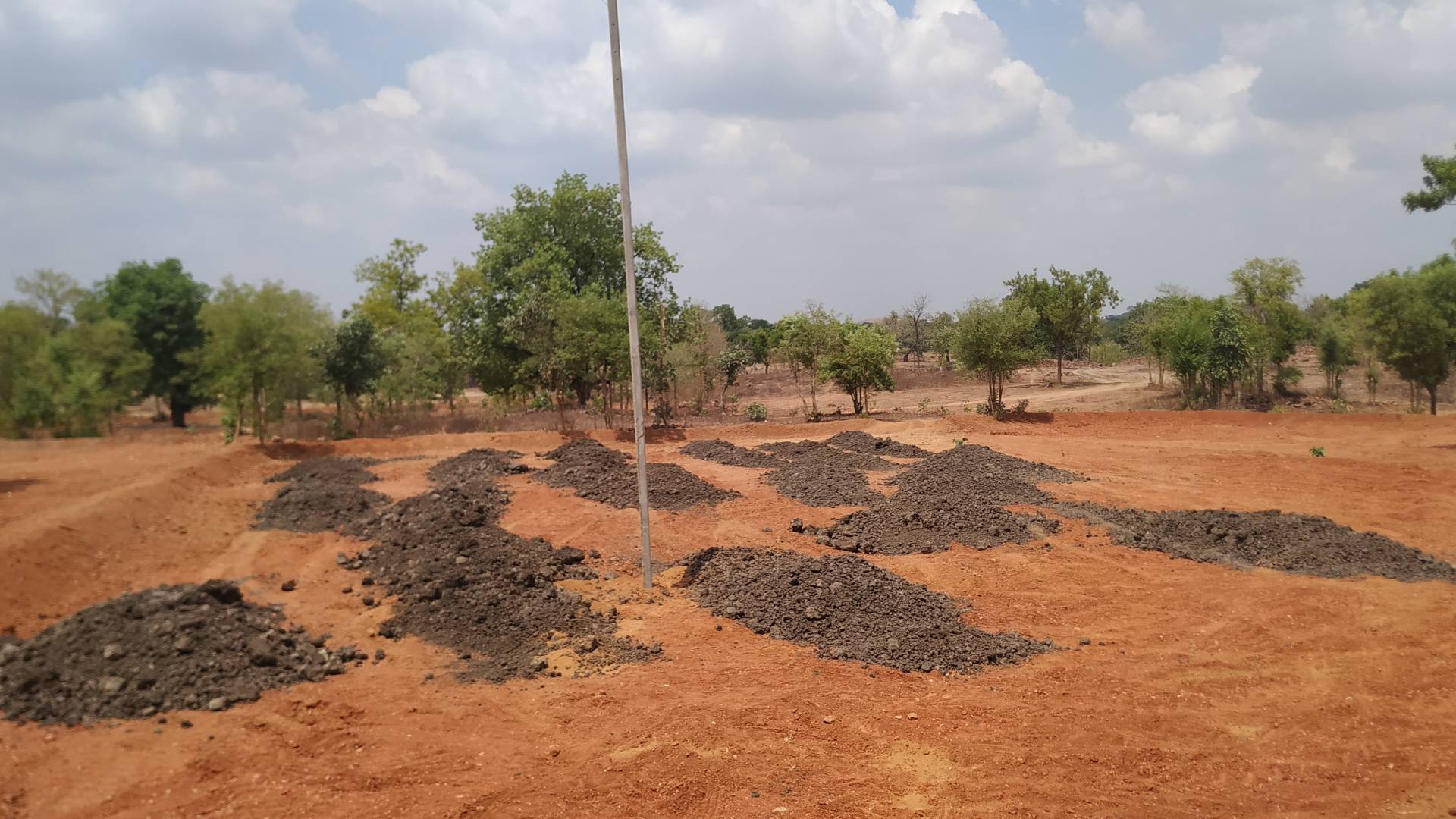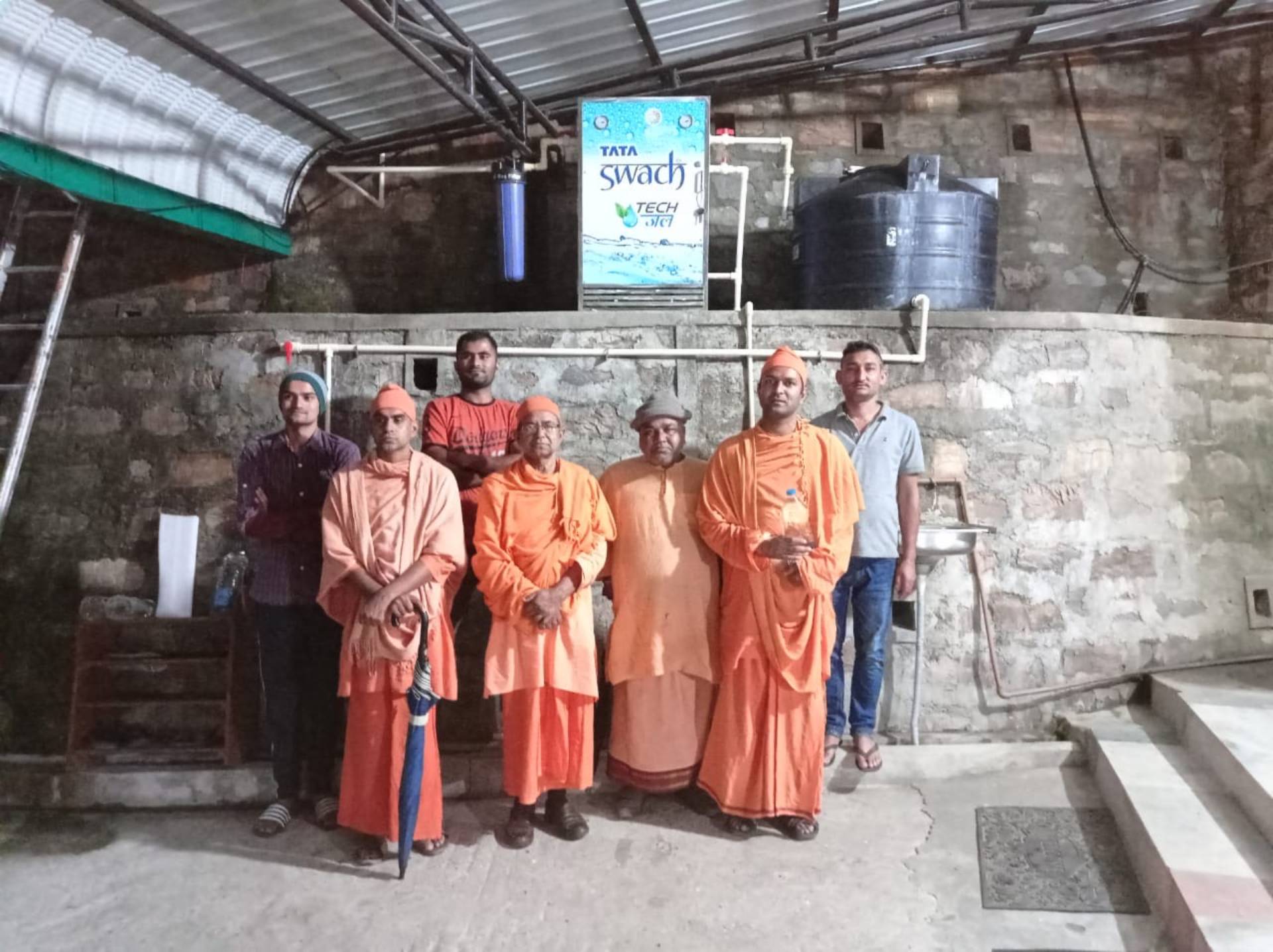Our experience over the last decade has made us realise the inter-connectedness of the various verticals and the cascading impact that an effective water programme can bring about.
By Mangesh Wange, CEO, Swades Foundation
Until recently, Mulgaon, a tiny hamlet in Nashik’s Trimbak taluka relied on a single well almost 500 meters from the main village. During summers – April to June – theirs was the only well with water in all of the nearby geography. “From April to June, communities from five nearby hamlets came to fetch water from our well. On those days, fetching water would take close to four hours. One family member had to be dedicated to the duty, making us lose out on daily wage work,” says Tukaram Chavre.
In 2022, Swades Foundation’s water scheme for the entire village of Mulgaon supported by donor partners provided Tukaram’s home with a drinking water tap. “It has transformed our lives,” he said. Tukaram is one of the 2,20,000+ lives positively impacted by the water schemes under Swades’ WatSan (water and sanitation) program. So far, the foundation has constructed 713 water schemes, built toilets in 28,979 homes with support from CSR partnerships and helped declare 1,503 hamlets as Open Defecation Free – ODF.
As a grassroots execution non-profit, Swades’ vision is to create a model of development that lifts a million people out of poverty every 6-7 years. The foundation currently works in 5 major areas of community living, namely water, sanitation, education, health and livelihoods. Our experience over the last decade has made us realise the inter-connectedness of the various verticals and the cascading impact that an effective water programme can bring about. Water, followed by sanitation is hence at the helm of all transformation efforts at a Swades Village, tying in to UN’s SDG 6 – Clean water and sanitation. Following are the areas where one can see the transformative impact especially for women across various aspects of life because of “direct to home’ drinking water availability:
Health impact
Access to clean drinking water liberates women from the drudgery of walking miles each day for fetching water from an open source. Back aches, neck pains, extreme exhaustion – these are common symptoms for women who carry heavy pots of water multiple times each day. It is sadly also common for the women to drink less water, in order to save more for the family, leading to dehydration, abdominal pains, cramps etc. Drinking contaminated water on the other hand poses a whole other set of challenges. According to a study published by Water Aid, an estimated 37.7 million Indians are affected by waterborne diseases annually. 1.5 million children are estimated to die of diarrhoea alone. Lack of a sanitation infrastructure further fuels the contamination of water.
Swades communities report of fewer health scares and doctor visits after access to a water tap and household sanitation.

Safety and Dignity
Most women and young girls in rural communities walk long distances to relieve themselves – often before the break of dawn or late in the night to avoid passers-by. It is not very uncommon for them to be a victim to snake and scorpion attacks and in some cases, abduction and even rape. A toilet in the home premises therefore goes beyond sanitation services, assuring safety and restoring dignity.
The opening of some of the toilets in Swades’ Nashik villages (with garlands, ribbons, cracking of a ceremonial coconut and aarti) are testimony to the special place they hold in the lives of rural the communities.

Education
A 2020 Comptroller and Auditor General of India (CAG) survey suggested that out of 1,967 coeducational government schools that they surveyed, 40% did not have a functional toilet. A whopping 72 per cent had no running water either. Lack of a sanitation infrastructure directly impacts attendance of children, especially girls. A 2019 report by Dasra suggested that 23 million girls drop out of school annually due to lack of sanitation facilities and no awareness around menstrual hygiene. A functional water and sanitation infrastructure with a separate toilet for girls and boys after high school, can help girls pursue education after hitting puberty. Swades has built school watsan facilities in 248 schools so far to address this problem.
Livelihoods
A Water Aid study suggests that 73 million working days are lost due to waterborne diseases in India each year. Spending long hours to fetch water too leads to loss of work hours for communities that rely on daily wage labour.
Access to water has real economic or monetary implications. The story of Angrekond, a ‘Swades Dream Village’ is particularly heart-warming in this regard. Before Swades launched the Drinking Water Scheme in Angrekond in 2017, the women here spent 2-3 hours each day fetching water. When the water scheme installed a tap in each home, the women found the time and energy to engage in economic activities. They received training in financial literacy from Swades, apart from support to set up SHGs – this included SHG registration, branding, labelling etc.
Today, a group of 30 women in Angrekond run three Self-Help groups – Asha Mahila, Samriddhi and Pragati – that are engaged in kitchen garden, dairy, poultry and papad-making.In 2021, collective sales from kitchen gardens-enabled by grey water from household taps – fetched close to Rs 4,00,000. The produce has enriched the nutritional value of their own meals too.
Clean water and sanitation are corner stones to public health. Collectively they also hold the key to uplifting all areas of life and empowering communities to take charge of the change they wish to see. If we want to see our rural communities flourish, we must as governments, corporates and civil institutions invest in their access to clean drinking water and a functional toilet.
(Photo credits: Swades Foundation)






